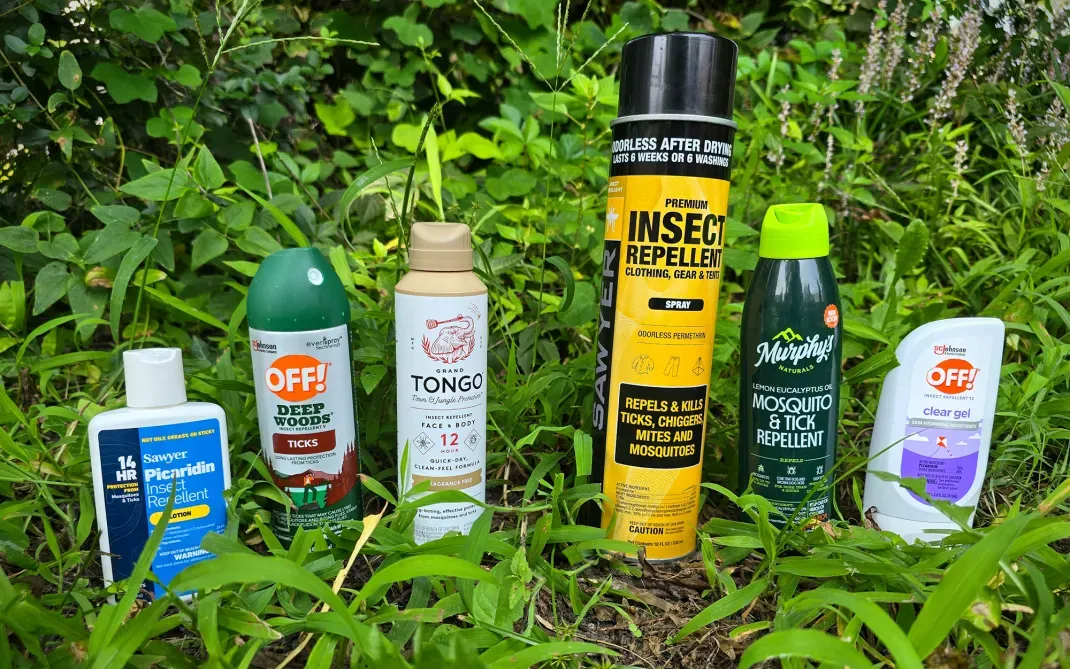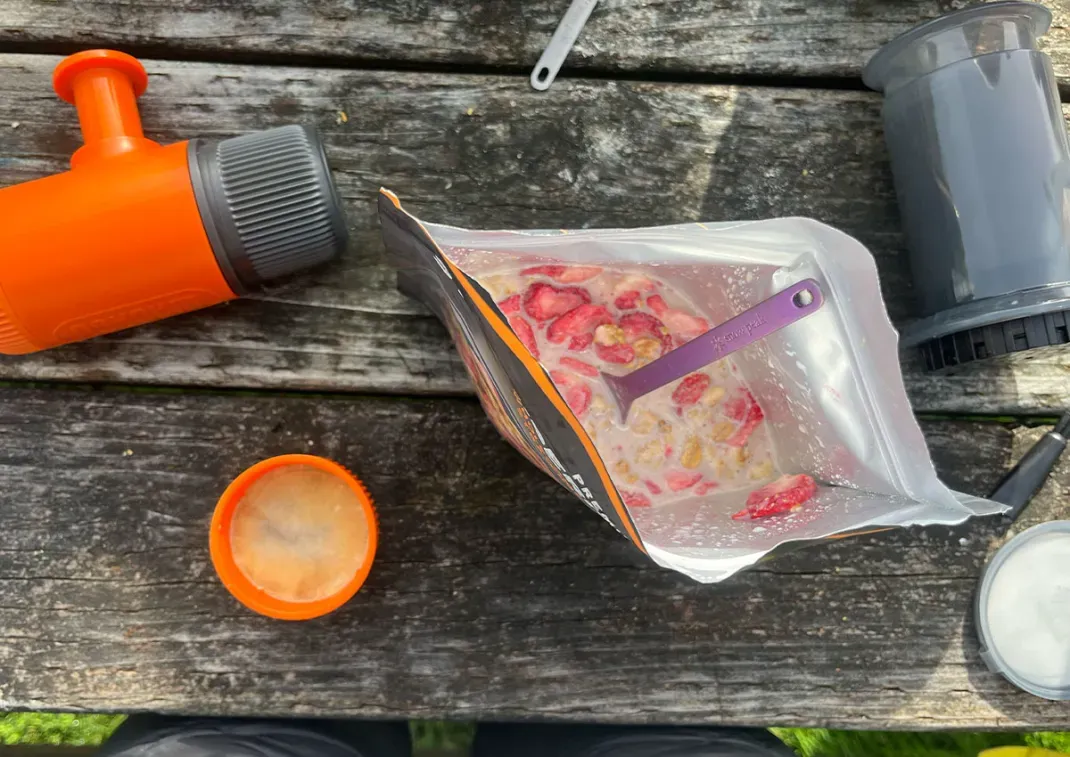The Best Tick Repellents of 2024
As tick populations continue to rise, finding effective repellents is essential for outdoor enthusiasts and pet owners alike. The best tick repellents of 2024 offer a variety of options, from chemical formulations to natural alternatives. Many products contain proven active ingredients like DEET, picaridin, or oil of lemon eucalyptus, providing long-lasting protection against ticks. Additionally, new eco-friendly formulations are gaining popularity, appealing to those seeking sustainable solutions. When choosing a repellent, it's crucial to consider factors such as duration of effectiveness, skin compatibility, and the specific outdoor activities planned, ensuring optimal protection against tick-borne diseases.

As we step into the year 2024, the importance of effective tick repellents cannot be overstated. With ticks becoming increasingly prevalent in various regions, the need for reliable protection is paramount for outdoor enthusiasts, pet owners, and families alike. Ticks pose significant health risks, including Lyme disease and other tick-borne illnesses. Therefore, understanding the best tick repellents available this year is crucial for safeguarding oneself and loved ones while enjoying nature.
In 2024, a variety of tick repellents have emerged on the market, showcasing advancements in formulation and effectiveness. Traditional chemical repellents, such as those containing DEET, remain popular due to their long-standing efficacy. DEET, or N,N-diethyl-meta-toluamide, has been a cornerstone of insect repellents for decades, effectively deterring a wide range of biting insects, including ticks. Products with higher concentrations of DEET, often around 20 to 30 percent, provide extended protection lasting several hours. However, concerns about skin irritation and potential environmental impacts have led many consumers to seek alternatives.
Natural repellents have gained traction as a safer, eco-friendly option. Essential oils like lemon eucalyptus oil have been developed into effective repellents that provide a more pleasant scent compared to traditional chemical formulations. In 2024, products containing oil of lemon eucalyptus have been proven to be comparable to DEET in their effectiveness against ticks, offering a compelling alternative for those who prefer to avoid synthetic chemicals. These natural repellents not only protect against ticks but also against mosquitoes and other pests, making them versatile solutions for outdoor activities.
Another noteworthy trend in tick repellents for 2024 is the emergence of permethrin-treated clothing. Permethrin is a synthetic insect repellent that can be applied to clothing, footwear, and gear. This method provides long-lasting protection, as the treated fabrics repel ticks upon contact. Outdoor brands have begun to offer clothing lines specifically designed for tick prevention, featuring permethrin-treated materials that remain effective through multiple washes. This approach allows individuals to enjoy prolonged outdoor activities without the constant need to reapply topical repellents.
For pet owners, protecting furry companions from ticks is equally important. In 2024, a range of pet-safe tick repellents has been introduced, focusing on both topical and collar applications. Many of these products utilize natural ingredients, such as cedarwood oil and citronella, to keep ticks at bay while being safe for pets and their humans. Additionally, some innovative products combine flea and tick prevention in a single formula, streamlining the process for pet owners who want comprehensive protection for their animals.
The convenience of tick repellents has also improved in 2024, with the introduction of innovative applicators and formulations. Spray-on repellents remain a popular choice for their ease of use, but new options, such as tick-repelling wipes, have entered the market. These wipes provide a portable and mess-free solution for on-the-go protection, making them ideal for hiking, camping, or any outdoor adventure. The wipes are often infused with natural oils and are designed to be gentle on the skin, appealing to those who prioritize both safety and efficacy.
In addition to topical repellents, the market has seen the rise of electronic tick deterrents. These devices emit ultrasonic frequencies intended to repel ticks and other insects in the vicinity. While research on their effectiveness is still ongoing, some users have reported positive experiences, making them an intriguing option for those looking for a chemical-free approach to tick prevention.
When selecting a tick repellent, it is essential to consider the specific environment in which it will be used. Areas with dense vegetation or high tick populations may require stronger formulations or more frequent reapplication. Conversely, for casual outdoor activities in low-risk zones, natural repellents may provide sufficient protection. Additionally, individuals with sensitive skin or allergies should opt for products formulated without harsh chemicals or irritants.
Education is equally important in the fight against ticks. Consumers are encouraged to familiarize themselves with proper application techniques to maximize the effectiveness of their chosen repellent. Applying the product to all exposed skin and clothing, and ensuring even coverage, significantly enhances protection. Furthermore, after returning from outdoor activities, thorough tick checks should be conducted to identify any ticks that may have attached themselves before they can transmit diseases.
As we navigate through 2024, it is evident that tick repellents have evolved to meet the diverse needs of consumers. From traditional chemical formulations to innovative natural solutions and permethrin-treated clothing, the options are abundant. The emphasis on safety, efficacy, and environmental consciousness has transformed the market, providing consumers with a range of choices to protect against the dangers of ticks.
Ultimately, the best tick repellent is one that aligns with individual preferences and lifestyle needs. Whether one chooses a classic DEET-based spray, a natural essential oil formulation, or permethrin-treated gear, the key is to remain vigilant and proactive in tick prevention. As we embrace the great outdoors this year, equipping ourselves with the right tools to fend off ticks will ensure that our adventures remain safe and enjoyable, allowing us to fully appreciate the beauty of nature without the looming threat of tick-borne illnesses.






